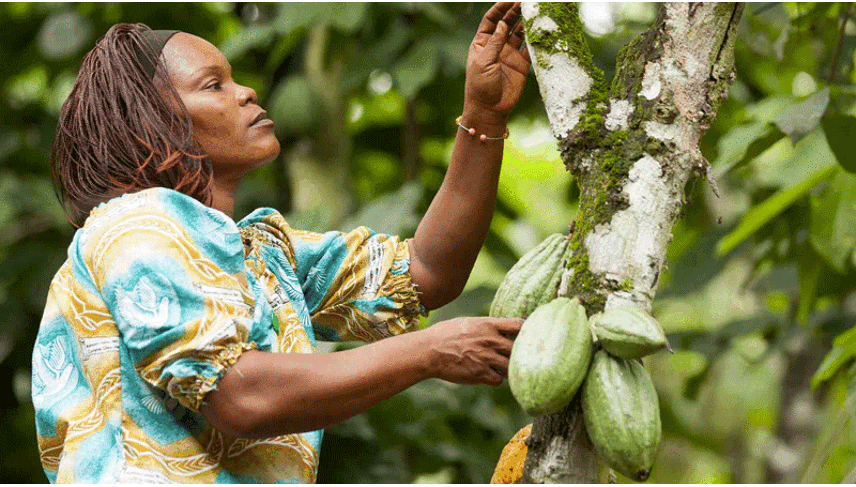Register for free and continue reading
Join our growing army of changemakers and get unlimited access to our premium content

Image: Galaxy
The Mars-owned chocolate brand has called the commitment “bold” and pledged to deliver “tangible impact”. A spokesperson for Mars told edie: “Our promise is that we’ll only count someone towards our pledge if we believe that we have helped them prosper in some way, only then would we consider them to be one of the people that we helped to thrive.”
Galaxy is working with a network of NGO partners to design and deliver programmes that contribute to its goal, including some organisations it already has long-term partnerships with, such as CARE International.
One of the programmes already being delivered by CARE and Galaxy covers Women for Change Village Savings and Loans Associations (VSLAs). VSLAs enable women working in cocoa farms to diversify their incomes, providing them with the finance and education they need to launch and grow other businesses and to increase their incomes from cocoa also.
The vast majority of the world’s cocoa farmers do not earn a living income. On average, they earn 6% of the final value of the chocolate they contribute to, according to the Fairtrade Foundation. Receiving pay premiums for cocoa and access to training and resources can uplift incomes significantly.
The uplift is likely to be more significant for women. Women face significant barriers in gaining access to the capital, training and other resources required to successfully run a cocoa farm, CARE has stated. Often, they have not been able to access education to the same level as their male peers, and may instead have spent their youth working or being forced to marry and be homemakers rather than in school.
The new 2030 ambition from Galaxy builds on Mars’ existing Cocoa for Generations plan, which was launched in 2019 and committed $1bn to cocoa supply initiatives over a decade. The plan covers improving cocoa farmer incomes; identifying, preventing and mitigating human rights abuses including forced labour; and ending deforestation and land conversion.
On this latter point, Mars Wrigley and Mars Inc are committed to ending deforestation and land conversion in cocoa supply chains by 2025. It has also committed to hold its land use footprint steady even if the business grows in the future.
Tracking progress in the areas covered by the plan can prove challenging with a supply chain like cocoa, which is multinational and dependent largely on smallholder farmers. Mars therefore has a commitment to ensuring that all cocoa can be traced from farmer to purchase by 2025, up from around 60% of its cocoa at present.


Please login or Register to leave a comment.